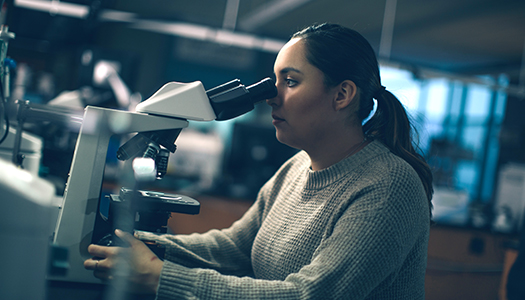- Home
- Career Overview
-
Looking
-
Applying
- College Overview
-
Planning
-
Applying
-
Paying
-
Attending
- Military Overview
-
Joining
-
Serving
INDUSTRY:
In fast-growing, in-demand industries, Science, Technology, Engineering and Mathematics (STEM) careers represent exciting prospects for many applicants.
There are 77 careers in this industry

Perform engineering duties in designing, constructing, and testing aircraft, missiles, and spacecraft. May conduct basic and applied research to evaluate adaptability of materials and equipment to aircraft design and manufacture. May recommend improvements in testing equipment and techniques.
Study the origin, development, and behavior of human beings. May study the way of life, language, or physical characteristics of people in various parts of the world. May engage in systematic recovery and examination of material evidence, such as tools or pottery remaining from past human cultures, in order to determine the history, customs, and living habits of earlier civilizations.
Plan, direct, or coordinate activities in such fields as architecture and engineering or research and development in these fields.
Observe, research, and interpret astronomical phenomena to increase basic knowledge or apply such information to practical problems.
Investigate atmospheric phenomena and interpret meteorological data, gathered by surface and air stations, satellites, and radar to prepare reports and forecasts for public and other uses. Includes weather analysts and forecasters whose functions require the detailed knowledge of meteorology.
Develop new or improved designs for vehicle structural members, engines, transmissions, or other vehicle systems, using computer-assisted design technology. Direct building, modification, or testing of vehicle or components.
Study the chemical composition or physical principles of living cells and organisms, their electrical and mechanical energy, and related phenomena. May conduct research to further understanding of the complex chemical combinations and reactions involved in metabolism, reproduction, growth, and heredity. May determine the effects of foods, drugs, serums, hormones, and other substances on tissues and vital processes of living organisms.
Define, plan, or execute biofuels/biodiesel research programs that evaluate alternative feedstock and process technologies with near-term commercial potential.
Conduct research using bioinformatics theory and methods in areas such as pharmaceuticals, medical technology, biotechnology, computational biology, proteomics, computer information science, biology and medical informatics. May design databases and develop algorithms for processing and analyzing genomic information, or other biological information.
All biological scientists not listed separately.